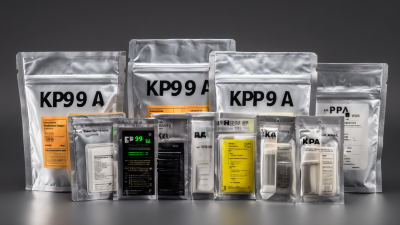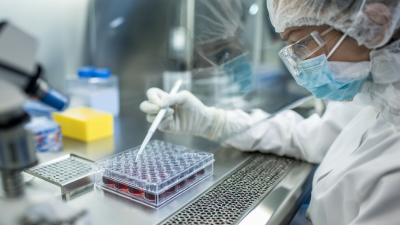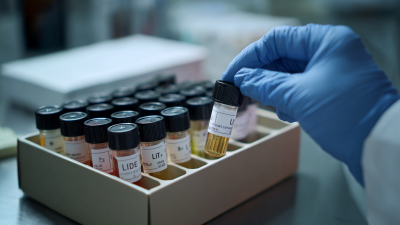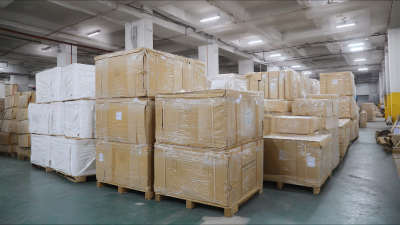 +86 178 5514 5298
+86 178 5514 5298
Leave Your Message
-
 CONTACT NUMBER
CONTACT NUMBER -
 CONTACT NUMBER
CONTACT NUMBER -
 CONTACT NUMBER
CONTACT NUMBER



In the rapidly evolving biotech industry, ensuring compliance with the stringent regulations surrounding the transportation of biological materials is of paramount importance. One such regulation, UN 3373, specifically addresses the packaging and shipping of diagnostic specimens, research samples, and other potentially infectious substances. The UN 3373 bag, designed to meet these regulatory requirements, serves as a critical component in safeguarding public health and maintaining the integrity of scientific research. However, despite its significance, many organizations face numerous challenges in adhering to these regulations. This tutorial aims to explore the complexities involved in utilizing UN 3373 bags effectively, addressing common pitfalls, compliance strategies, and best practices to navigate the intricacies of biotech logistics while ensuring regulatory alignment and operational efficiency.

The UN 3373 regulations are pivotal for biotech companies engaged in the transportation of biological substances. These regulations mandate specific packaging and labeling standards to ensure the safe handling of potentially hazardous materials. Key requirements include the use of triple packaging systems, which consist of a primary container, a secondary container, and an outer package. Each component must meet stringent specifications to minimize the risk of leaks and spills, protecting both the public and the environment.
Tips for compliance include conducting regular training sessions for staff involved in the packaging and shipping process. Ensuring that all team members understand the importance of the UN 3373 requirements can significantly reduce the likelihood of violations. Additionally, create a checklist based on UN 3373 standards that can be referred to during the packing process. This ensures that every shipment is packaged correctly and labeled appropriately, mitigating compliance risks which could lead to costly penalties.
Another critical aspect is maintaining clear documentation for each shipment. This includes tracking the contents, packaging details, and recipient information. By establishing a robust documentation process, biotech companies can facilitate compliance audits and demonstrate adherence to UN 3373 regulations, ultimately enhancing the safety and integrity of biological substance transportation.
The biotech industry faces numerous challenges when it comes to complying with UN 3373 packaging regulations, particularly regarding the transportation of biological substances. One common pitfall is the misconception that standard packaging materials will suffice for compliance. Many companies overlook the specific requirements outlined in the regulations, such as the need for triple packaging, which includes a primary container, a secondary packaging layer, and an outer packaging that meets the necessary performance standards.
Another frequent issue arises from inadequate training and awareness among staff handling these materials. Without a clear understanding of UN 3373 requirements, employees may inadvertently make mistakes that could lead to non-compliance. This not only jeopardizes the safety of the transport process but can also result in costly delays and penalties. Regular training sessions and updated resources are essential to ensure that all personnel are familiar with the latest regulations and best practices for maintaining compliance in their operations.
Ensuring compliance with UN 3373 regulations in the biotech industry is critical for the safe transport of biological samples. Best practices begin with thorough staff training, as human error remains a leading concern. According to a report by the Global Harmonization Task Force, over 60% of compliance failures stem from inadequate training. Regular workshops and updates on regulatory changes can mitigate this risk, ensuring that all personnel are well-versed in the proper handling and packaging of infectious substances.
Another key practice involves regular audits of packaging processes. The Biotech Compliance Association found that companies conducting quarterly audits reduce non-compliance incidents by nearly 30%. By systematically evaluating the adequacy of UN 3373 compliant packaging and addressing any deficiencies proactively, organizations can foster a culture of compliance that prioritizes safety. Furthermore, partnering with certified packaging suppliers ensures that biologics are dispatched using containers that meet industry standards, thereby minimizing the chance of regulatory violations.
This chart illustrates the primary challenges faced by the biotech industry in complying with UN 3373 regulations. Training and awareness issues topped the list, followed by packaging errors and documentation issues, highlighting key areas for improvement.
Navigating international variability in the implementation of UN 3373 bag regulations presents significant challenges for the biotech industry. Different countries interpret and enforce these regulations uniquely, creating a complex compliance landscape. Biotech companies must stay informed about the specific requirements in each jurisdiction where they operate, coping with discrepancies that can affect their logistics and product safety. This inconsistency can lead to delays, increased costs, and operational inefficiencies, hampering the industry's ability to deliver critical healthcare solutions.
Moreover, the need for companies to adapt to these varying requirements is exacerbated by global events and humanitarian crises, as highlighted by recent efforts in regions like the Sahel and Syria. As organizations attempt to provide timely assistance in these areas, the complexities surrounding UN regulations become even more pronounced. The biotech sector must therefore strengthen its compliance strategies and collaborate with regulatory bodies to ensure that they not only meet UN 3373 standards but also contribute effectively to international humanitarian efforts. This commitment is crucial for maintaining the integrity of the industry while navigating the unpredictable nature of global compliance challenges.

Training staff on UN 3373 compliance is crucial for any organization operating in the biotech sector, especially in the wake of increasing regulatory scrutiny. The complex nature of biological materials requires that employees understand the specifics of packaging, labeling, and transport as outlined by UN 3373 regulations. Incorporating interactive training modules can significantly enhance employee engagement and retention of vital information. Workshops that include case studies and hands-on exercises allow staff to apply their knowledge in real-world scenarios.

Another effective strategy is to create a culture of compliance by integrating training into onboarding processes and ongoing professional development. Regular update sessions can keep employees informed about any changes in regulations and reinforce the importance of adhering to compliance standards. Utilizing e-learning platforms can also facilitate flexible training schedules, making it easier for staff to access materials at their convenience. By establishing a comprehensive training program, biotech companies can mitigate risks and ensure that staff remain informed and compliant with UN 3373 regulations.






